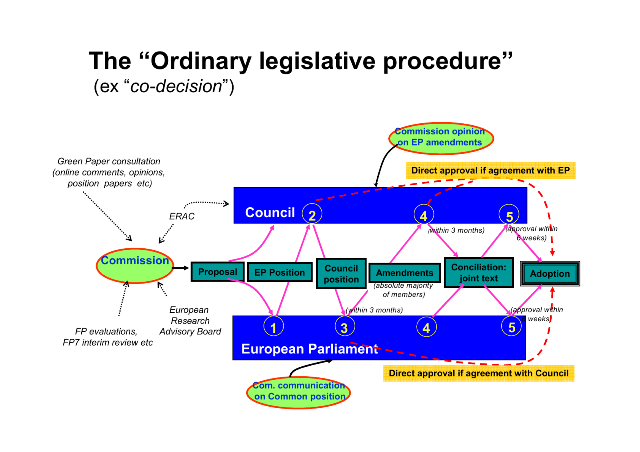Last week marked the first anniversary of the Innovation Union flagship initiative, one of the cornerstones of the Europe 2020 strategy for growth and jobs, prompting the European Commission to summarise progress to date. A more comprehensive progress report is promised by the end of November.
Top of the list is the recognition of the importance of innovation and of the Innovation Union flagship initiative by the Member States. On 4 February 2011 – at the first European Council to place innovation at the top of the political agenda – EU leaders recognised the Innovation Union initiative as crucial for economic growth and backed a series of proposals designed to promote its formation.
Later in February came the announcement of Horizon 2020 the successor to Framework Programme 7 (FP7), with a pledge to increase investment in research, innovation and education under a single and simple framework. The Commission launched a wide consultation on major improvements to EU research and innovation funding to make participation easier, increase scientific and economic impact and improve value for money.
Following the consultation, on 30 November the Commission will present its proposal for the new Horizon 2020 programme which will bring existing financial instruments for supporting research and innovation within a common structure. The Commission is proposing a budget of €80 billion for the period 2014 – 2020.
Also in February 2011, the Commission adopted measures to make participation in the current FP7 more attractive and more accessible to the best researchers and most innovative companies, especially Small and Medium-Sized Enterprises. Further measures to make participation in EU support programmes are being discussed with the Council and the European Parliament, currently.
Focusing EU research funding on innovation and grand challenges
Then in July 2011, the European Commission announced nearly €7 billion to kick-start innovation through research, with new calls for proposals under FP7. These will support activities that help bridge the gap between research and the market, for example by demonstrating that new technologies have commercial potential or can work on a sufficiently large scale to be industrially viable.
The Commission also launched the first European Innovation Partnership, designed to speed up breakthrough innovations by pooling resources around a compelling need, and quickly bring benefits to citizens. The pilot EIP on active and healthy ageing aims to add two healthy years to the average lifespan. The experience gained in setting up this pilot will pave the way for other partnerships.
Also during the first year of the Innovation Union, one of its key elements, the European Institute of Innovation and Technology, successfully completed its initial phase, setting up decision-making and executive functions, and its operational arm, the Knowledge and Innovation Communities (KICs). The Commission says EIT has been successful in reaching its core objective: the integration of the entire innovation chain, bringing together higher education institutions, research organisations and businesses in new types of partnerships, operating in the areas of sustainable energy (InnoEnergy KIC), climate change (Climate KIC) and future information and communication society (EIT ICT Labs).
After less than a year of activity, the first concrete results are already visible both in terms of business creation (five start-ups since January 2011) and a first EIT-backed Masters’ course organised by InnoEnergy, with 155 students, the Commission claims.
Facilitating access to finance
Access to finance remains one of the biggest barriers for innovative companies. By the end of this year, the European Commission will put forward a proposal for an EU-wide venture capital scheme, building on the capacity of the European Investment Fund (EIF), other financial institutions and national operators.
In addition, during the first year of the Innovation Union, EU leaders for the first time set a deadline for the completion of the European Research Area, In February the European Council called for the completion of ERA by 2014. In September, the European Commission launched a wide-ranging public consultation on ERA, which will close in November, to identify the main outstanding issues that need tackling.
It was already a work in progress, but the Commission also cites progress on the single patent, as an achievement in the first year of the Innovation Union. On 13 April 2011, the Commission adopted proposals to create a unitary European patent under enhanced cooperation rules.
The Commission claims the Innovation Union is also helping to speed up the development of open and affordable standards, presenting a standardisation package designed to modernise policies and legislation so that they better support innovation, in June 2011.
Making more strategic use of public procurement
European Commission launched a pilot call for proposals under the current EU Research Framework Programme and a feasibility study to consider the design of a support scheme for public procurement for research and innovation. By the end of this year, the Commission will present a communication on modernising the EU public procurement framework.
Since 2001 the European Innovation Scoreboard (EIS) has been providing annual assessments of innovation performance across the EU. The 2010 edition published in February 2011 marked the debut of the Innovation Union Scoreboard (IUS) to support the Innovation Union initiative. This provides a better picture of the EU’s overall situation. International comparability, in particular, has been improved and the scoreboard also closely integrates research and innovation to help monitor the implementation of the Innovation Union.
In June 2011, the Commission launched the smart specialisation platform to support regions and Member States in better defining their research and innovation strategies. This will help the regions to assess their specific research and innovation strengths and weaknesses and build on their competitive advantage.
In May 2011, the Commission set out a blueprint for intellectual property rights to enable inventors, creators, users and consumers to adapt to the new circumstances and to enhance new business opportunities. The new rules will strike the right balance between promoting creation and innovation, in part by ensuring reward and investment for creators and, on the other hand, promoting the widest possible access to goods and services protected by IPR.

